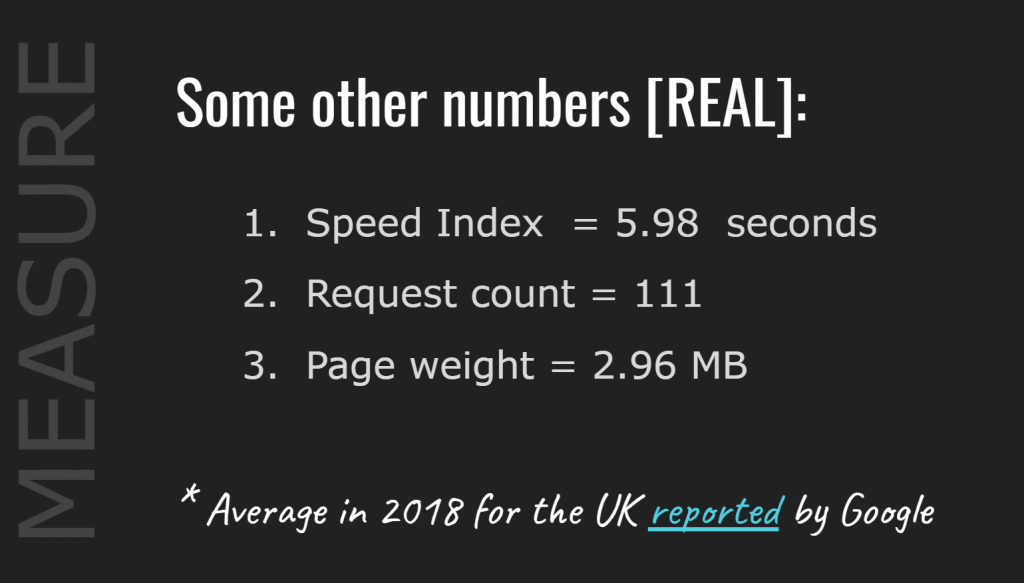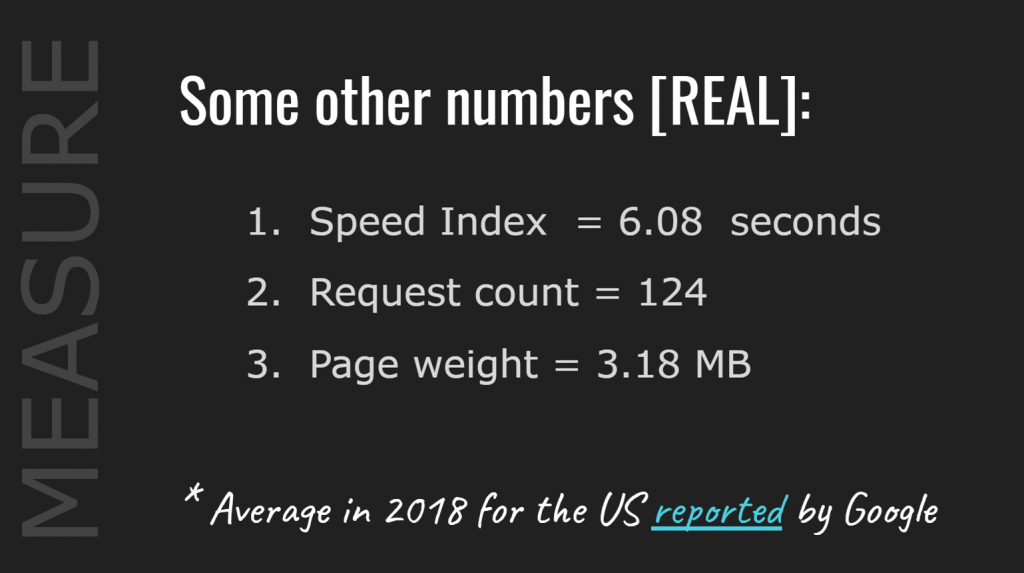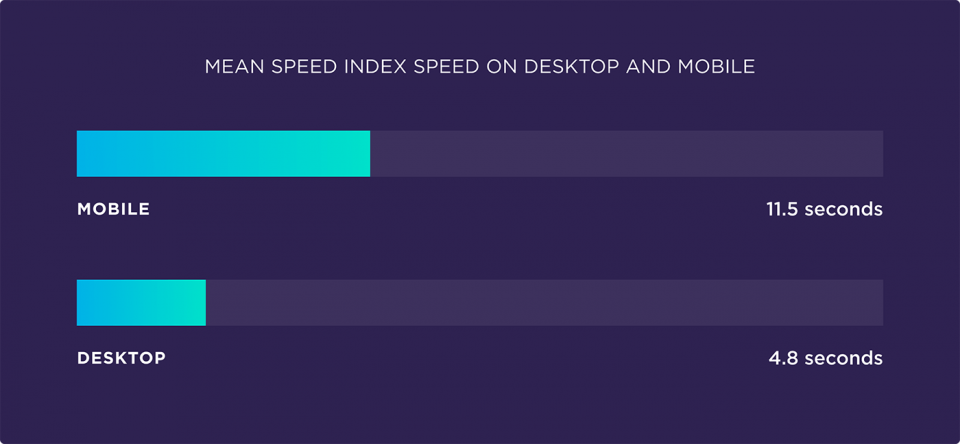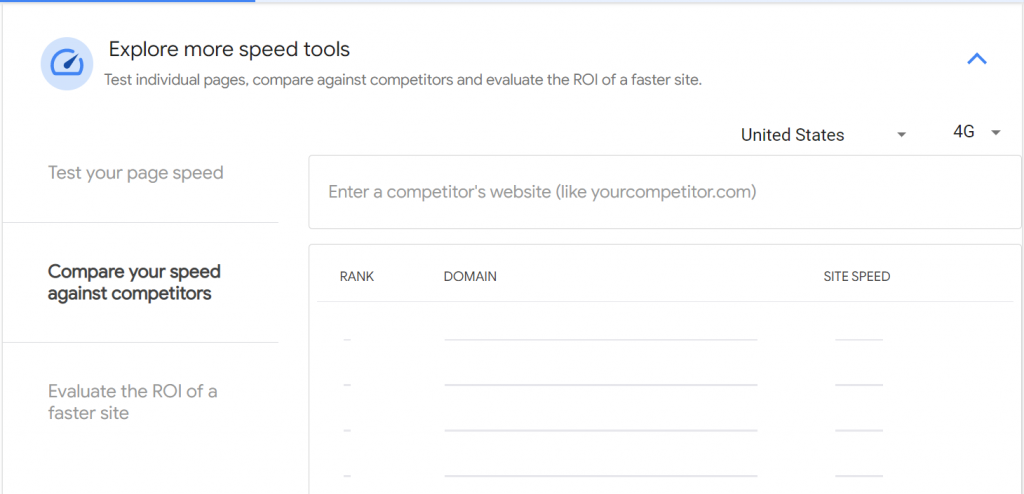You have definitely noticed that today every webmaster, every site owner, and every SEO specialist is worried about website speed. Just go open any major publication such as Search Engine Land or Mashable and you will easily find a post about site speed, how important it is, how to make your website load faster, and so on and so forth. To be honest, I won’t be surprised to see Cosmopolitan writing about site speed soon too.
With so much buzz about it, you go and try to find the definite answer to the question:
How fast should my website load?
And you get them. Plenty of answers and recommendations:
“Save every millisecond you can”, “You’ve got no chance on Google if it’s slower than 1.5 s”, “2 seconds is the threshold for e-commerce website acceptability”, “We aim for under a half-second“, “Your landing page load time is killing your conversion rate”…
So the obvious conclusion here — the faster the better.
And you find yourself browsing all those how-to-make-it-fast tutorials and testing your homepage loading times over and over again — because it is so important for SEO…
But wait!
Let’s see the numbers first! What Google says they expect us to deliver?
Recommended page load time by Google
- Recommended Speed Index < 3 seconds
- Recommended Request count < 50
- Recommended Page weight < 500KB
Cool! So what’s now? You just need to adjust your website to these numbers?
If you check your website's page the chances are it has more than 50 requests, and weights way, way more than 500KB. Most likely, it's not even close to Google's recommended numbers! Share on XCan this be improved?
There is always room for improvement! Unless there is no.
I do this on a daily basis — I make websites load faster while they look and function exactly the same as before. Sometimes it’s about 70-80% which looks really impressive of course but happens to the websites that were fantastically slow before that.
The usual number is about 30-40% faster. Which is pretty good too. Especially for the websites that are not that slow — it was loading fine before, and after optimization, it loads like really fast.
But then, there is always a point when loading times can’t be improved without making significant changes to a website — such as refactoring/changing a theme, switching to another service provider (payment gateway/chatbots/plugins/etc). At some point, there is just no way to reduce the number of requests and your page weight while keeping its existing functionality and design.
By the way: when people say “site speed” they usually mean homepage speed, which doesn’t make much sense. Here is how to test your REAL site speed, the one that helps you with SEO , conversions, and money.
We can just get rid of all the things you have on your website (including WordPress) and serve a blank homepage. Your website will be the fastest site in the world with 1 request and 0KB. But that’s not exactly what you would like to do, right?
There is always a way to make your website load faster. But it doesn't mean you would like to do it no matter what it takes. Share on XThe dirty truth about performance optimization that your developer won’t tell you
![How fast should a website load in 2021 [you might be overthinking it]](https://sabrinazeidan.com/wp-content/uploads/2021/01/IMG_20200915_172305-2-1024x768.jpg)
Sometimes you can see those posts on the Internet: “I’ve got my homepage load under 1 second”, or “My homepage weights 400KB” or “My homepage has 26 requests”.
And indeed, some developers and web-agencies have their websites loading blazing fast.
And it looks like a promise that a site that they will be creating for you will be loading instantly, too. But it’s not the case!
Developers and agencies can remove lots of things from their websites. Use a super-minimalistic design with one single tiny image per page or — even — go static. So they are able to show off their site speed results to their existing and potential clients (and fellow developers too, of course).
But the thing is that their clients don’t have that privilege!
If you’re having an average website, say a news portal, you can’t just remove images from your posts. Even more than that, on some pages, you’d like them to be organized into a good looking gallery slider. Sometimes followed by video, or two! You do need to have that Subscribe popup, and MailChimp plugin to make it work. You definitely need those advertising systems, and buttons for social sharing, and Facebook Pixel to connect with your users, and Google Analytics to understand how well your content performs.
You might need a chatbot connected with your FAQ too, maybe a booking widget, maybe a payment gateway, sign-in using Google/Facebook/Twitter account etc… And that is a very modest list — nothing fancy, really!
If you ever tried to follow Google's 50 requests per page and 500KB recommendations, you know that it is super hard to fit in. In many cases — it's just impossible. Share on XBut the truth is — most of the websites perform exactly the same!
Average page load time benchmark [Hello, real world!]
Here is data for 2018. A bit old, but it’s the latest coming directly from Google though. And it’s split by countries too!


There is more fresh data (October 2019) coming from Brian Dean.
At backlinko.com they analyzed 5.2 million desktop and mobile pages and discovered that:
The average Speed Index is 4.782 seconds on desktop and 11.455 seconds on mobile.

I’ve got neither resources to run extensive study as Backlinko did, nor ready-to-go data like Google (luckily, they do!)
But I just tested a couple of random websites that came to my mind:
Not that blazing fast actually, right?
And these are the websites that definitely don’t lack organic traffic from Google, and have huge teams working on improving their conversion rates.
Does website speed affect SEO?
Sure.
Is website speed the only factor that impacts your search ranking?
Of course, no!
There are plenty of them. And website speed is a ranking factor that is only important until certain point. Look,
- bodybuilding.com gets about 6 million visits from Google every month and their Speed Index is 7.9 seconds
- mentalfloss.com gets about 8 million visits from Google every month and their Speed Index is 12.3 seconds
- aliexpress.com gets about 52 million visits from Google every month and their Speed Index is 6.6 seconds
Just a little bit more than “Google recommended” 3 seconds, right?
There is a point when your site speed doesn’t affect SEO and conversion rate a lot.
Say, on your website after user has clicked a “Buy” button he used to wait for 5 seconds before he can enter his credit card information. You managed to improve it to 2 seconds. You will see a dramatic change in the conversion rate of this step!
But if you put additional efforts to make it 1 second instead of 2 (which is much harder, than going from 5 to 2) you might find out nothing changes much, and all the hustle wasn’t worth it! This happens because now it’s other factors that make a much more difference.
Be reasonable and don’t become obsessed over page load times too much.
Is drinking coffee from a "My website loads in X seconds" mug your life's ambition? Share on XI bet it’s not!
Your goal is to get more leads to your website and more conversions, right?
Good news is that you don’t need to be the fastest in the world to do it.

So, what is a good site speed for SEO?
While ranking websites Google doesn’t rank them according to the recommended page size or numbers of requests.
It doesn’t rank them according to Speed Index/Time To First Byte/Largest Contentful Paint values.
And it certainly doesn’t rank them according to PageSpeed scores. (Be kind and share this post with a friend who believes in superstions!).
Instead, Google ranks websites comparing them to each other in that specific situation and puts a website that seems to be providing more value to a user higher.
We are talking here about comparing websites that compete for the same request for the same user. It means that your pizza delivery in Bristol will be competing with other pizza deliveries in Bristol. And Google will be ranking your website’s page exactly for that user and exactly for that query.
Your website’s page is competing with other websites’ pages for a specific query for specific users.
As page loading time is one of many others ranking factors, what you really want to do — is to make sure that it doesn’t keep you away from higher position (that could be possible if your website would have been better).
To be able to compete your website doesn’t need to have any specific numbers of requests, or page weight, or load as fast as Google has recommended. It just should be loading at least not slower than other websites there. But:
Ideally, your website's speed should be 20% faster than your competitors'. Share on XThis way you can not only be sure your website performance is not holding you back. But also have it as an advantage.
Will you get more advantages if your website will be twice faster than your competitors? Probably not — other ranking factors would be important.
Remember, that the whole thing about success in SEO is the combination of all ranking factors together.
It is very important to understand this to have realistic expectations and set achievable goals. If your websites’ important pages already load 20% faster than competitors — use Occam’s razor principle and stop worrying about it, it’s already good enough.
You’ll gain much more if you put your efforts into other important SEO things that are starving for your attention right now.

Be fast enough to compete but stay reasonable.
How to make sure your website is performing well?
If you use Google Pagespeed Insights to check your site speed, you might want to check out this plugin of mine. It’s called SpeedGuard. It uses Pagespeed Insights API to monitor different pages of your website on daily basis and send you a notification in case it needs your attention.
You can monitor your site’s pages with it automatically, test your competitors’ websites manually and compare the results.
Also, Google has this service for checking your website’s pages speed against competitors. It doesn’t have a device choice or connection, but it definitely useful to get the idea of how good your website performs. And you also can choose the location which is super cool considering the fact that you can’t do that with PageSpeed Insights.

This might sound surprising coming from someone who specializes in performance optimization, but:
If your website is already 20% faster than your competitors — stop worrying about it and grab a drink! You deserved it! Share on X

Leave a Reply